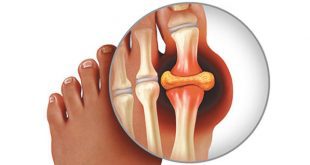

Minimally invasive surgery minimizes surgical incisions to reduce trauma to the body. This type of surgery is usually performed using thin-needles and an endoscope to visually guide the surgery. The advantage of minimally invasive surgery is to reduce post-operative pain, reduce blood loss, increase the speed of recovery and lessen the formation of scar tissue.
Spine surgery is now one of the many surgeries being performed using minimally invasive techniques. In order to be considered a minimally invasive spine surgery, the procedure needs to minimize the trauma to the patient through smaller incisions and less muscle dissection. Traditional open surgical procedures still currently account for a majority of spinal surgeries performed in this country today. When a surgeon performs an open procedure using outdated techniques, hospital stays can last up to a week. The recovery period with this type of procedure can last as long as a year leaving cut muscle ligaments and a large scar. Dr. Mario Pereira who utilizes minimally invasive surgical techniques can perform the same procedure as an outpatient or with minimal hospital stay, a few months recovery period, and very little scarring. He is currently the only surgeon in Charlotte County who can perform this type of procedure as an outpatient.
Advances in spinal fusion devices allow placement through several smaller incisions rather than the traditional large incision site used in open spinal fusion surgery. The theory is that the devices can be placed with minimal trauma to the muscle and tendons in the back. These devices allow for the stabilization of the vertebrae and the restoration of the correct anatomical alignment in the spine.
Patient education plays a vital role in the overall success of a surgical plan of treatment at the Southwest Florida Spine Institute. It is important that the healthcare team makes patients aware of the potential benefits and risks of a surgery. Knowing what is causing your pain, is key to understanding what is required to fix it.
Aftercare can be just as important as the surgery itself. The risk of infections in post-surgical wounds is a great example of this; the size of the surgical wound and how it was closed can increase the chance of infection. Dr. Mario Pereira for instance, closes his surgical incision sites the same way a plastic surgeon would, greatly reducing infection rates. Home healthcare plays a critical role in reducing the chances of infection as well, by ensuring that daily dressing changes are done appropriately and that the wound is not exposed to potentially harmful bacteria.
Clinical outcomes are a tell tale sign of the quality of care a physician provides their patients. Recent developments in the healthcare industry are making it a requirement for physicians to track the effectiveness of the care they provide. Currently Dr. Mario Pereira is seeing a 45.75% decrease in overall disability by the end of the first post-operative year, as tracked by the Oswestry Disability Index.
Dr. Mario L. Pereira
420 Tamiami Trail Suite 1, Port Charlotte, Fl 33952
www.swflspineinstitute.com
 Southwest Florida's Health and Wellness Magazine Health and Wellness Articles
Southwest Florida's Health and Wellness Magazine Health and Wellness Articles

